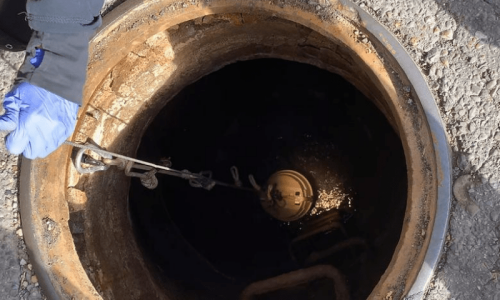KARACHI, July 14: Sindh Health Minister Dr Sagheer Ahmed wants the health department and international health organisations to take polio eradication campaigns more seriously and come up with viable plans to improve the situation in Sindh, where 10 confirmed cases of polio have been reported in first half of the year.
The health minister expressed these views on Monday following a presentation made by a delegation of the Unicef, led by Dr Asif Aslam, on various initiatives planned for the year and a few ongoing programmes related to maternal and child health care in the province. According to a source privy to the meeting, Dr Ahmed showed his dissatisfaction over the performance of international health organizations, saying that instead of admitting their deficiencies both the local and international health organizations had been shifting the responsibilities on each other.
“The campaign against polio virus cannot yield results unless the quarters concerned admit their negligence and failures,” the minister said, adding that the organisations and NGOs associated with anti-polio activities should own the campaign in a true sense and join hands in removing the hurdles.
The minister, who according to a source focused largely on the eradication of polio in the province, said another reason behind the polio campaign’s failure were the lack of interest shown by the district health officers. “The officers are failing to monitor their subordinates entrusted with the relevant field jobs,” the minister was quoted.
He said the Unicef should prepare a package in regard to training of district health officers and formulate its execution as well.
Besides, he laid emphasis on the improvement of the polio-related micro-plan and asked all the partners and stakeholders to ensure an effective implementation of the plan. A proposal was also under consideration to increase the number of immunization days from the existing three to four for the coming drive, which was expected to commence in July’s last week, he added.
The Unicef team urged the minister that the trained officers and other employees should not be transferred frequently from the expanded immunization and other projects, as the newcomers took time to get acquainted with the new assignment. Subsequently, the campaigns were adversely affected.
The delegates also apprised the minister of their support to the hygienic practices among pregnant mothers, capacity building of EPI staff in various districts, social mobilization for immunization, quality assurance for iodised salt production, emergency preparedness for health and nutrition and response planning at the provincial level.













































Dear visitor, the comments section is undergoing an overhaul and will return soon.